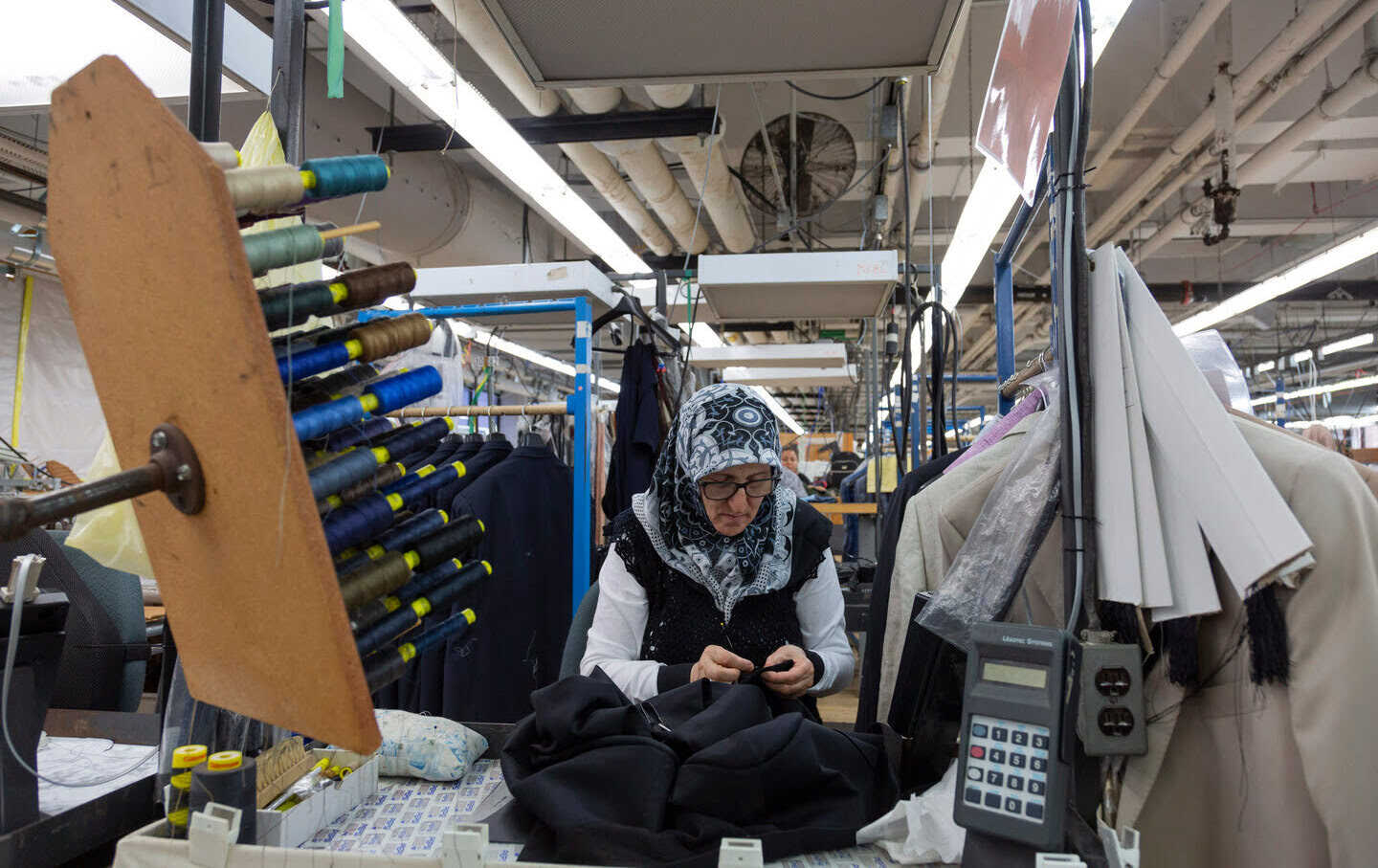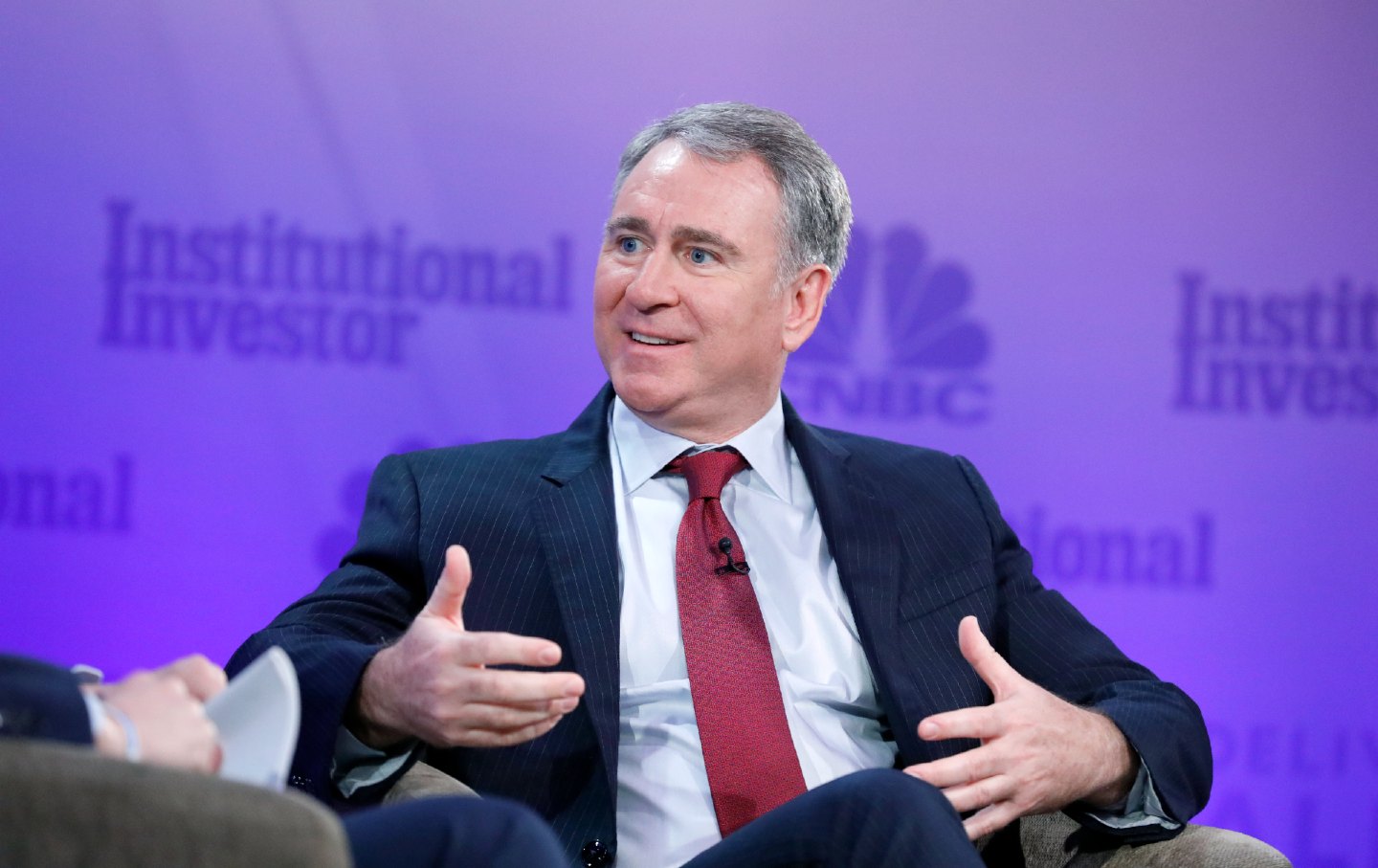“I Had to Turn My Interests Into Something Profitable”
For many young people today, work often means giving up their hobbies—or being forced to monetize them.

A single federal minimum-wage job, or even two, no longer provides a livable income in many states. According to the Economic Policy Institute, “the federal minimum wage is worth 30% less today than when it was last raised 14 years ago.”
In the early 19th century, social reformer Robert Owen called for “eight hours labor, eight hours recreation, and eight hours rest.” But for many young Americans entering the workforce, keeping this type of work-life balance isn’t feasible. Over 8 million people in the US now work multiple jobs—a post-pandemic high. For many, the issue isn’t just that work is turning into an all-consuming project, but that it’s taking over parts of life that are meant to be joyous. Today, work can often mean giving up hobbies to pick up an extra shift or turning hobbies into a job itself—and risk losing the joy.
StudentNation spoke to six young Americans to find out how work and play have changed for them. These interviews have been condensed and edited for clarity.
I have multiple contract jobs that help me make a living, but most of my jobs often go beyond “work hours” even until 10 pm. I feel like I don’t have time for hobbies—like my free time should be allocated to making money to support myself and help my family. I have begun trying to balance my work and life because although I need money, I still want to live a fulfilling life.
I’ve had to monetize my hobbies before—such as selling my paintings and sketches. From my own experience monetizing my hobbies always leads me to end up resenting the hobby and no longer wanting to do it because of the pressure and my perfectionism. It takes a lot of effort to unlearn hustle culture and put your value as a person into your character rather than your achievements.
As someone who used to be a workaholic—always striving for the next opportunity regardless of how it impacted my well-being—I can say from my own experience that it’s often extremely difficult to maintain and negatively impacts your self-worth. I believe that hustle culture is a direct result of living in a capitalist society and environments that don’t prioritize humanistic values.
—Zariyah Allen, 20, Atlanta, Georgia
As a full-time graduate student, high school teacher, and research assistant most of my time is filled with lesson planning, grading, homework, lab work, fieldwork and thesis paper writing. It is always “Go, go, go!” I usually find myself getting home around 9–9:30 pm, then I have to take care of the dog, do some laundry or cleaning or other chores. By the time I finish, it’s maybe 11 or 12, which is time for bed. And then I wake up at 5 am. There’s not as much leisure time as I would like—I maybe get a few hours over the weekend. Any time that I have to myself I usually use to sleep or rest.
I have made sacrifices to obtain more money. I have had to give up certain opportunities because they didn’t fit my work schedule. For me, it was either pay rent or not have a home. I had to turn my interests into something profitable. I love science and I love the performing arts. So what did I do? I became a teacher! I was able to do both and get paid.
—Fidel Renteria, 25, El Paso, Texas
I have a full-time job with a local environmental justice organization. We do a lot of grassroots organizing work on evenings and weekends. I also work with my nonprofit as well as take different contract work. I’ve been trying to get back into making art, and that’s been a struggle to find time.
It’s really unsustainable, especially working in environmental justice. We need movements that are sustainable—that prioritize a balance between work and health. But it is a struggle because there’s so much work to do especially in Texas—and the work doesn’t pay well—so then I have to do other things to get money. I have monetized my hobbies. I’ve actually sold keychains based on my art before. I also love cats, so I do cat sitting, and I used to work at a barn.
—Alexia Leclercq, 24, Austin, Texas
I’m in the process of raising money for my start-up while working part-time at a podcast. For me, it’s basically finishing school while working two jobs.
I only “rest” when I’m sleeping. I tend to be productive and I feel really bad if I’m not working on something because I don’t like “wasting” my time. I like art, sports, and policy research—these are my hobbies. I’ve written a book on politics and history and monetized it.
There should be a balance between spending time with those who you love—like your family and friends—and work. This depends on your financial situation though. I’m lucky enough to have been born into a financially secure family, so I’m “hustling” while knowing I have a good safety net to fall back on.
—Benjamin Chen, 18, New York City, New York
I produce podcasts, report, write, and copy-edit on a freelance basis as well as sell art—embroidery and custom shoes—on the side. Honestly, few of those bring in any reliable or substantial income, but it takes up all of my time.
I have always been passionate about my hobbies, but specifically chose not to pursue them as a degree or career because I knew that doing so would eventually suck the joy out of them. I see more and more people devaluing hobbies that can’t be monetized. I have regrettably internalized this, and find myself feeling antsy and guilty when I spend time doing anything that I can’t or won’t eventually market, promote, or sell.
I so rarely hear people say that it’s OK to just do things without hoping they will make money or propel your career. I find my life going in cycles. I’ll spend a few weeks or months feeling stressed out of my mind—so busy I forget to breathe—then a few weeks feeling incredibly antsy with absolutely nothing to do.
—Emma Lehman, 23, Los Angeles, California
Popular
“swipe left below to view more authors”Swipe →I was working a 9-to-5 in addition to having another job and several freelance clients. It was a brutal schedule, and work never ended at 5 pm. It felt like when I got home, I was just waking up and starting another work day. I’d wake up, go to work, come back, and essentially use my commute home to focus on the next set of tasks I had to complete. I’d come home and try to knock as many items off my to-do lists as possible as my eyes struggled to stay open.
Within our late-stage capitalist culture, the system thrives off our collective commitment to working as much possible—that it’s aspirational. I used to be a film major before working in organizing. I’ve monetized that passion to make videos and ads for progressive candidates and social justice causes. I love doing that, but now something I used to do for fun and service has become something I consider work. And because I love doing something, I’ll spend more time doing it, but essentially what I’m doing is spending more time working.
As a generation, we understand that life isn’t about work and our value isn’t in our ability to produce labor. Hopefully—one day—one job can be enough for everyone, and that job can be enjoyable and rewarding.
—Anish Mohanty, 22, Bay Area, California
More from The Nation

Why Bidenomics Was Such a Bust Why Bidenomics Was Such a Bust
A large majority of voters gave the Biden administration a failing grade on the economy. For the sake of future policy battles, it is worthwhile to try to understand their reasons...

Hickey Freeman's Next Chapter Hickey Freeman's Next Chapter
This factory in upstate New York is a testament to the lasting legacy and future of the modern labor movement.

If You Don’t Know Who Ken Griffin Is, You Should If You Don’t Know Who Ken Griffin Is, You Should
How the press keeps us in the dark about the new Gilded Age.

Millions of Workers Are Due More Overtime Pay. Will They Get It? Millions of Workers Are Due More Overtime Pay. Will They Get It?
New regulations are designed to expand the number of employees entitled to overtime. But the conservative courts have other ideas.

Ballet Dancers’ Next Move: Union Organizing Ballet Dancers’ Next Move: Union Organizing
Contract negotiations have brought higher pensions, mandated rest times, and increased wages for a job that requires intense schedules and years of training.

How Can We Wean Ourselves Off Our Country’s Military Dependency? How Can We Wean Ourselves Off Our Country’s Military Dependency?
Moving resources and skills and jobs from the military-industrial complex to civilian sectors is a big project. But it could start in your own community.


